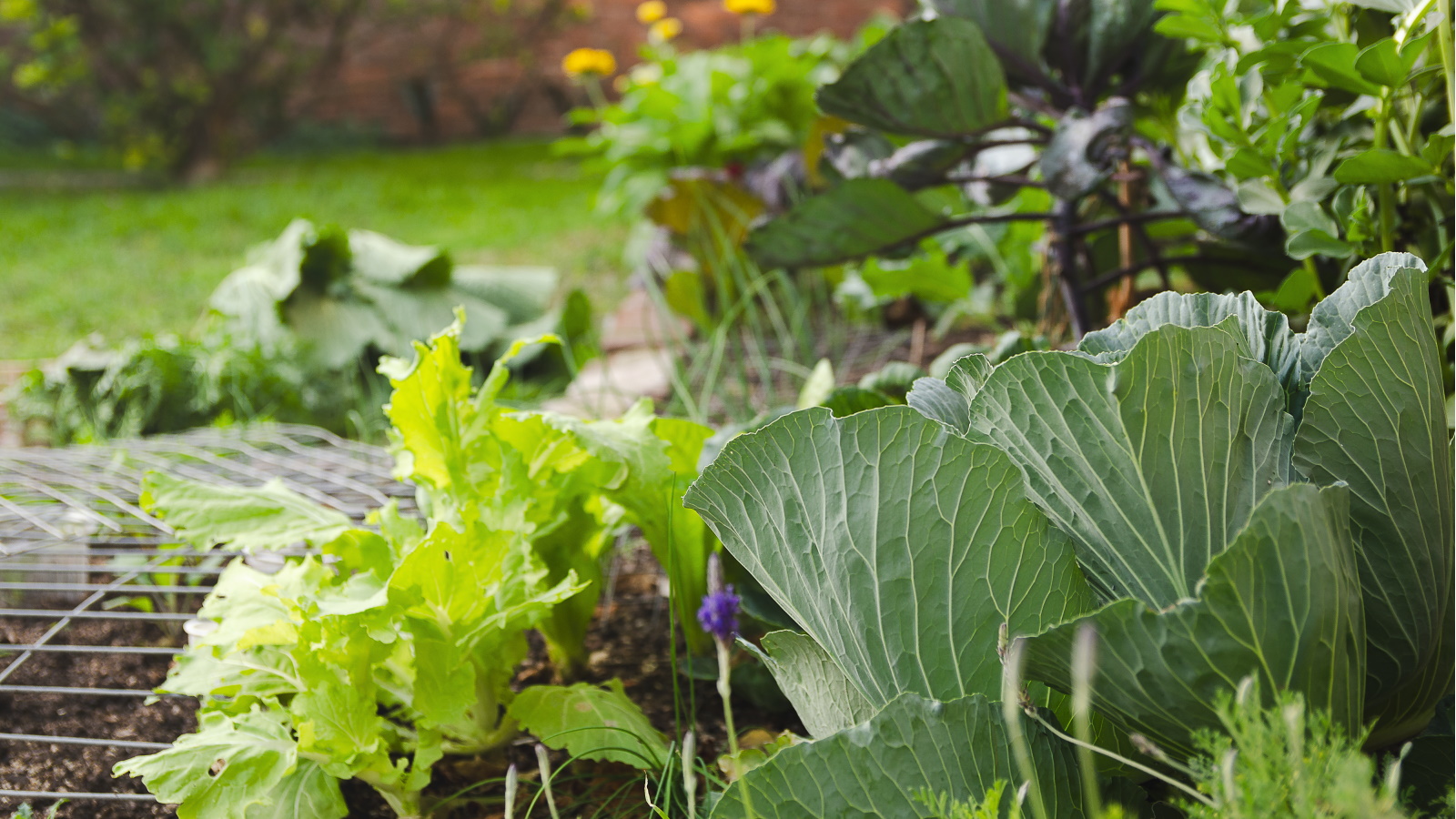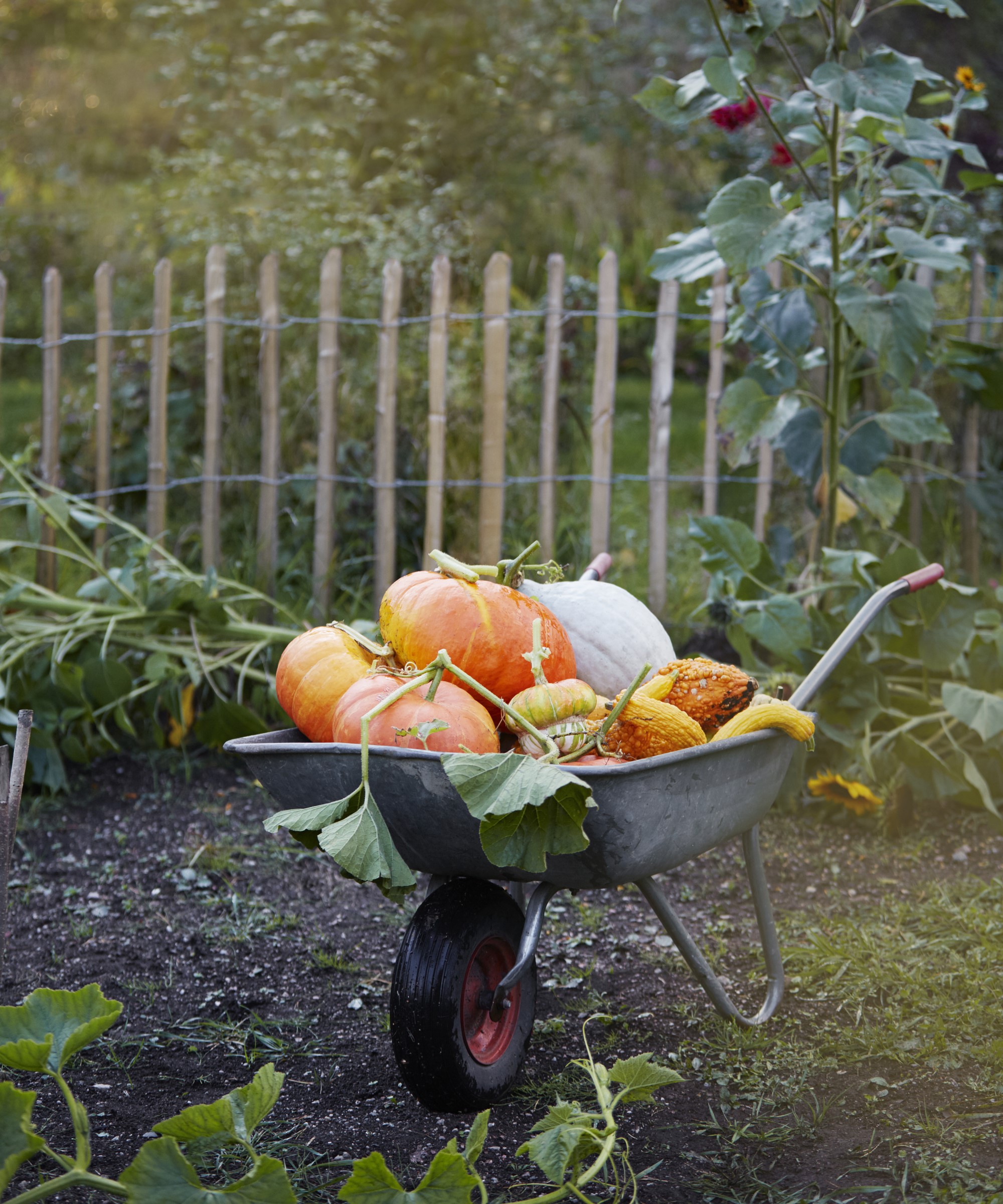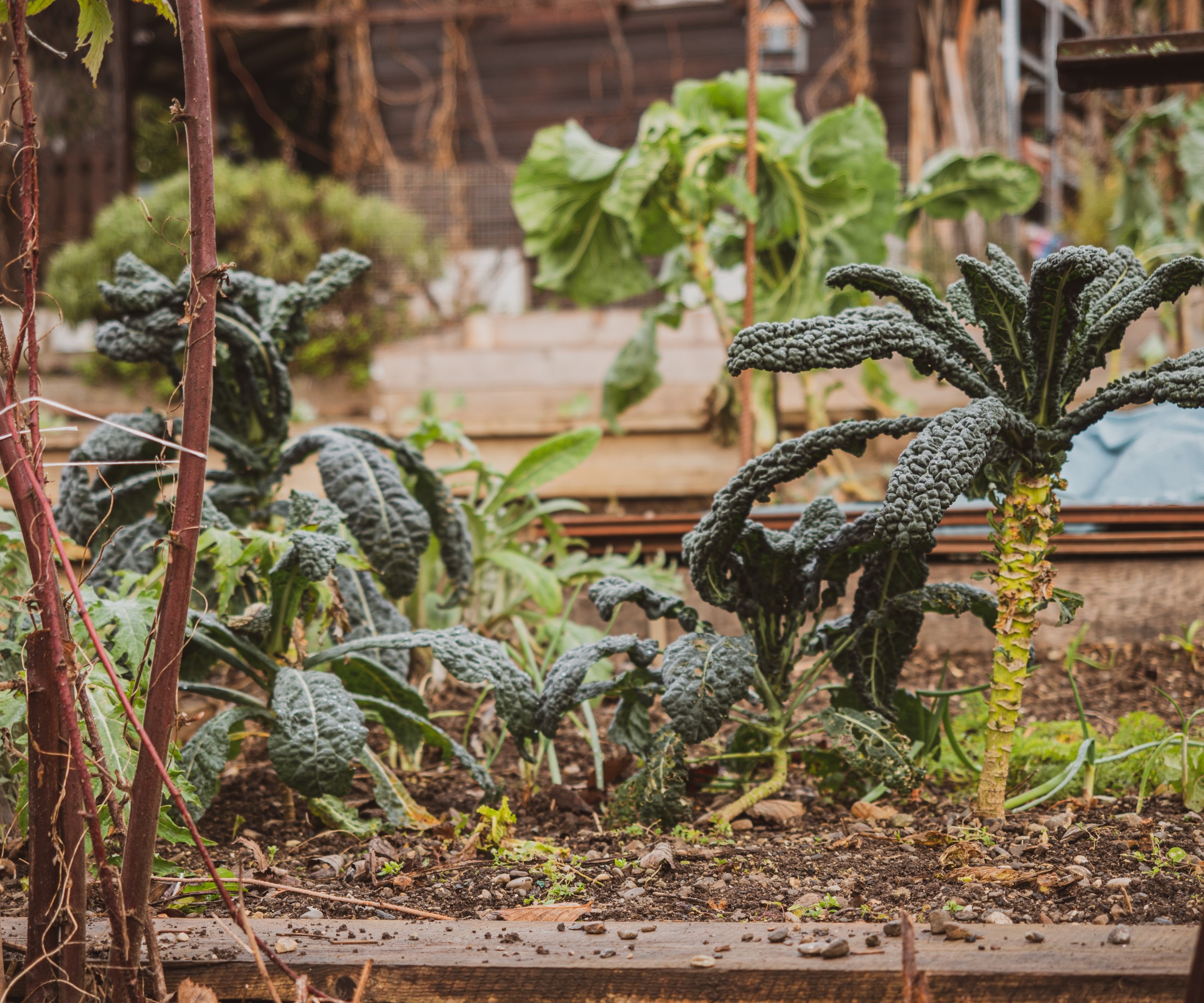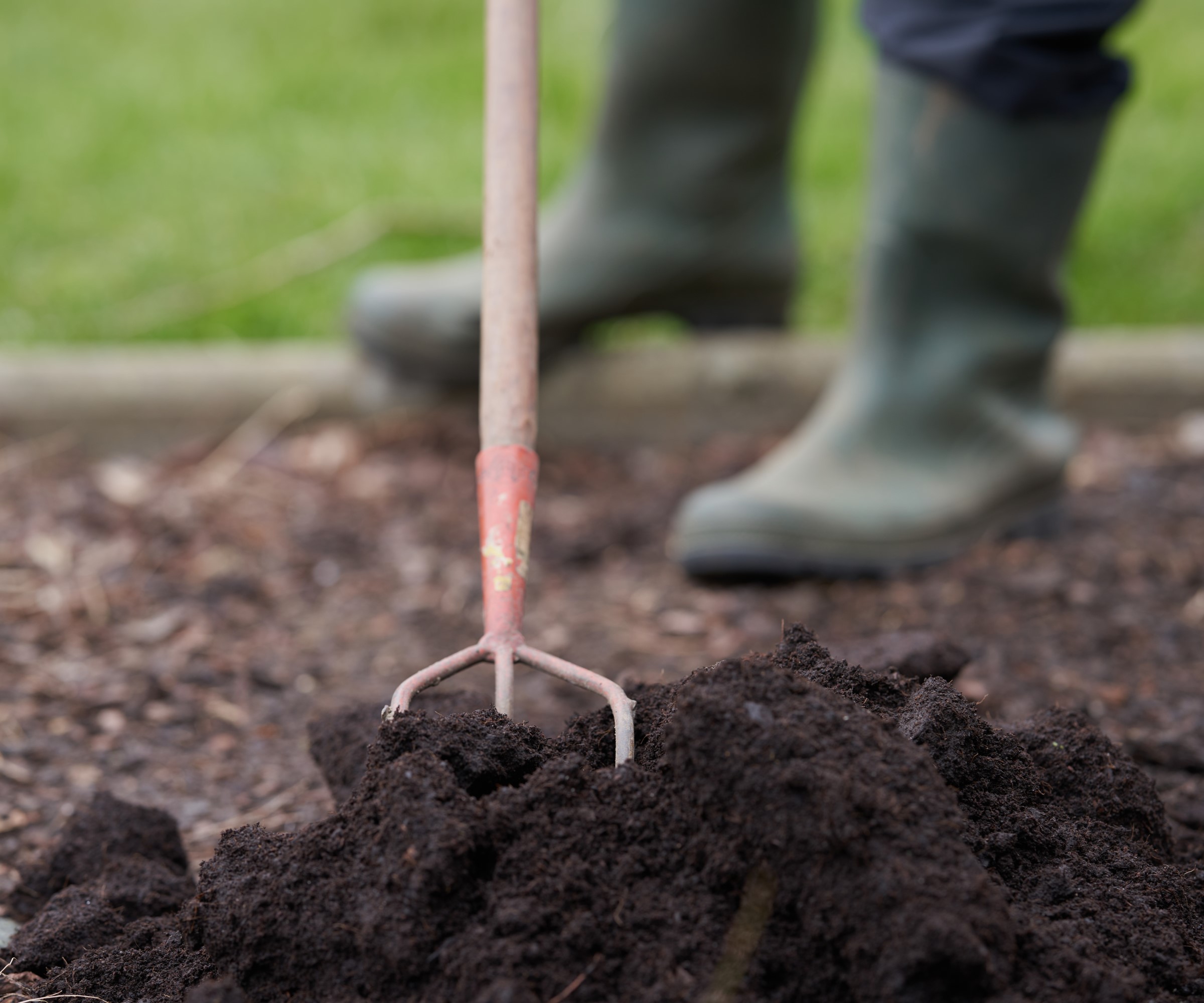
If you want your vegetable garden to be productive, you need to ensure its soil is fertile and full of nutrients. That's why you shouldn't rest on your laurels after a good summer of harvests. Fall is a great time to make efforts to fertilize your vegetable garden, and put nutrients back into the soil ready for next season’s crops.
Keeping the nutrient levels of soil high was highly important in all of the vegetable gardens I worked in. We made sure to feed the soil throughout the year, including in fall. This primarily came in the form of mulches and cover crops that were utilized to put nutrients back into the earth.
There are other feeds that can be added to help benefit plants still growing in the fall vegetable garden. Getting the timing right to apply such feeds is important to ensure the plants can take advantage before slowing down for winter.

Reasons to fertilize in the fall
Growing vegetables can deplete the soil as crops need lots of nutrients to grow during the season and produce a harvest. That is why it is a regular, and recommended, practice for growers to give their plants additional feed throughout the season, and to utilize crop rotation when planning a kitchen garden so that crops can actually put nutrients back into the soil.
The primary reason for fertilizing a vegetable garden in the fall is to help to rebuild those nutrient levels in the soil ready for future crops. A productive summer crop of vegetables will have expended many of the nutrients, and replenishment is important to ensure productive crops come the next season.
Think of feeding the vegetable garden in fall as an important proactive step to ensuring you get good yields from future vegetables planted in the garden. Not continually working to improve the soil is a vegetable gardening mistake that can result in under-performing crops and a reduction in any potential harvests.
Charmaine Peters is the Farm Director at Arden and she says that fertilizing in fall means the nutrients remain in the soil over the winter, giving plants immediate access to these nutrients come spring.
She adds: ‘In this way, we can support vigorous spring growth, resulting in healthier plants and potentially earlier harvests. And because the soil is ready for planting, you can save time and effort by not having to rush to fertilize your garden beds after the frost ends, and instead focus on planting and other spring gardening tasks.’
Fertilizing in the fall can also benefit existing vegetable and herb plants that may be present and growing in the kitchen garden. These plants will still be growing and developing root systems all the way up until they go dormant for winter. Charmaine Peters says: ‘Plants shift their energy from top growth to root development in order to produce higher concentrations of amino acids and sugars that help them resist freezing over the winter. This is why we should support the roots more during this season through fertilization.”
Ground left empty and fallow over winter can leach nutrients and be eroded, so covering the ground - either by mulching or with cover crops that are grown to add nutrients back - helps maintain the health of any vegetable garden. Mulching a vegetable garden and spreading a good thick layer of mulching materials can stop the soil freezing, prevent soil erosion, and it will be incorporated into the soil by worms to help boost the fertility levels.

Best time to fertilize a vegetable garden in the fall
The ideal window for fertilizing a vegetable garden in the fall is before the ground freezes, which will be dependent on your US hardiness zone and weather patterns. At this stage, any plant still growing will be able to take advantage of the added nutrients before going dormant for winter.
Lindsey Chastain, a homesteader and founder of The Waddle and Cluck, advises that the latest you would want to fertilize is around four weeks before the first frost date. She says: ‘Any later can leave fresh fertilizer in the soil over winter, where it may leach out from rain or snow. Aim to fertilize around early to mid-October in most regions. In zone 7b, we do our final fertilization one week before Halloween.’
If you are mulching the vegetable garden in fall, then the materials can be spread at any time in the fall period. The vegetable gardens I worked in tended to mulch in October. You want to get the mulch down in fall and before the frosts, as you never want to mulch on top of frozen ground.

Best fall fertilizers for vegetable gardens
Throughout history it has been common for vegetable growers to dig and add animal manure to planting sites ready for next year. It is important that fresh manure is never used straight onto plants, you must use aged manure to avoid burning the roots of plants with the high level of some nutrients that it contains. Fresh manure can be mixed into the soil in fall, so those high levels can leach away and reduce over winter to be at a usable level for crops come spring.
Lindsey Chastain warns to avoid ‘high-nitrogen fertilizers in fall, which can spur excessive leaf growth before winter’ that will be damaged by the cold weather. It often tends to be the case that fertilizers to be used in fall will not be high in nitrogen.
'Use a fertilizer that’s low in nitrogen (the 'N in NPK plant fertilizer numbers) and high in phosphorus ('P') for fall fertilizing,' advises Kathi Rodgers, CEO of Oak Hill Homestead.
One example of a good feed that is high in phosphorus as Kathi describes is bone meal, which promotes root development in plants still actively growing in fall.
When it comes to types of mulches that can be used over fall and winter, I have personally found success using compost or leaf mould as a mulching material that was spread on the surface over the fall period. Other options to spread include the likes of well-rotted manure, wood or bark chippings, and pine needles.
There is a wide range of cover crops that can be sown in fall and left to grow over fall and winter to put nutrients back into the soil. These include the likes of rye, buckwheat or planting fava beans as a cover crop, while I have also personally used phacelia and crimson clover successfully as winter cover crops in vegetable gardens. You can see a range of cover crop seeds at True Leaf Market.
Shop for fertilizers online to feed your fall vegetable garden
Bone Meal is a natural source of phosphorus and calcium. It breaks down slowly and is highly beneficial at promoting strong root development.
This blend of organic and natural ingredients revitalizes soil and help plants thrive. It includes beneficial microorganisms to help strengthen plants against stress and drought.
This fertilizer is specially formulated with micronutrients to help plants grow strong and produce more fruits and vegetables. It includes calcium to form stronger cell walls, producing better quality and longer-lasting fruits and vegetables.
FAQs
What is the best manure for a vegetable garden?
Several different types of animal manure are popular to use to feed vegetable gardens. I have tended to favor chicken manure in my kitchen gardens as it is high in nitrogen, while cow, sheep, and horse manure are all beneficial as they release their nutrients over an extended period of time. Any manure needs to be well-aged or added to the soil at least six months before the plants go into the area. You can get chicken manure pellets from Amazon to spread easily in the vegetable garden.
When you are starting a vegetable garden it is important to remember to continually feed and enrich the soil. Keeping that level of nutrients up is important for any kitchen garden idea on any soil type and fertile soil can be the difference between success and failure when it comes to growing vegetables.







